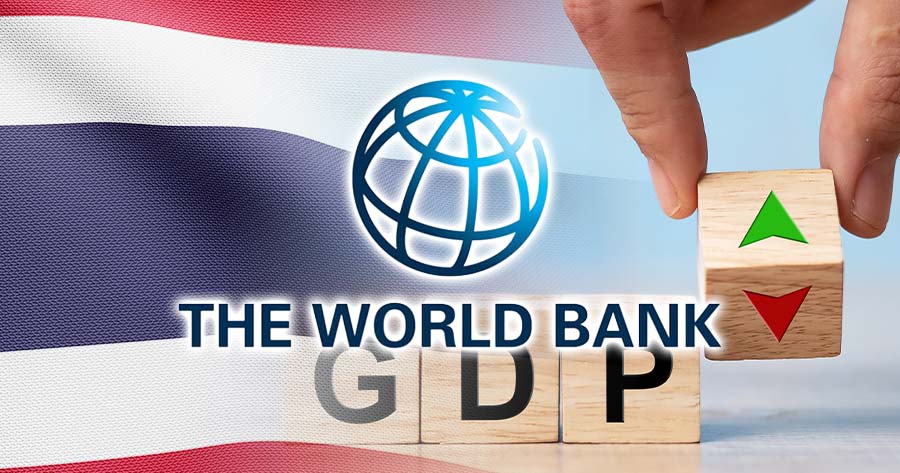According to the World Bank’s latest outlook published Thursday, Thailand’s economy is facing slower-than-expected growth as both global and domestic challenges weigh on prospects.
The organization anticipates Thailand’s GDP expansion of 1.8% for 2025 and 1.7% in 2026, down sharply from earlier estimates of 2.9% and 2.7%, respectively. Economic output last year rose 2.5%, already lagging regional peers.
The downgraded forecast comes as Southeast Asia’s second-largest economy struggles with tepid export activity and softer-than-anticipated tourism, particularly from a drop in Chinese visitor numbers. Domestic demand also remains sluggish.
Tourism’s rebound is proving slower than previously hoped, with international arrivals expected to reach 37.4 million this year, with a full return to pre-pandemic numbers not expected until the second quarter of 2026.
On the political front, uncertainty is adding to the economic drag. A potential delay in next year’s fiscal budget, along with a holdback in public infrastructure investment, could ripple through to private sector confidence and broader economic performance.
Thailand’s Constitutional Court this week suspended Prime Minister Paetongtarn Shinawatra as part of an ongoing legal review that may see her removed from office.
Meanwhile, as inflationary pressures ease and risks mount, the World Bank projects that the nation’s monetary policy will likely turn more accommodative in 2025.
Finance Minister Pichai Chunhavajira has also signaled that growth could come in just above 1% this year, citing the impact of potential U.S. tariffs. He is currently in the United States for trade talks, with Washington threatening to impose a 36% duty on Thai imports if negotiations fail ahead of the July 9 deadline, when a temporary 10% tariff cap for most nations is set to expire.





